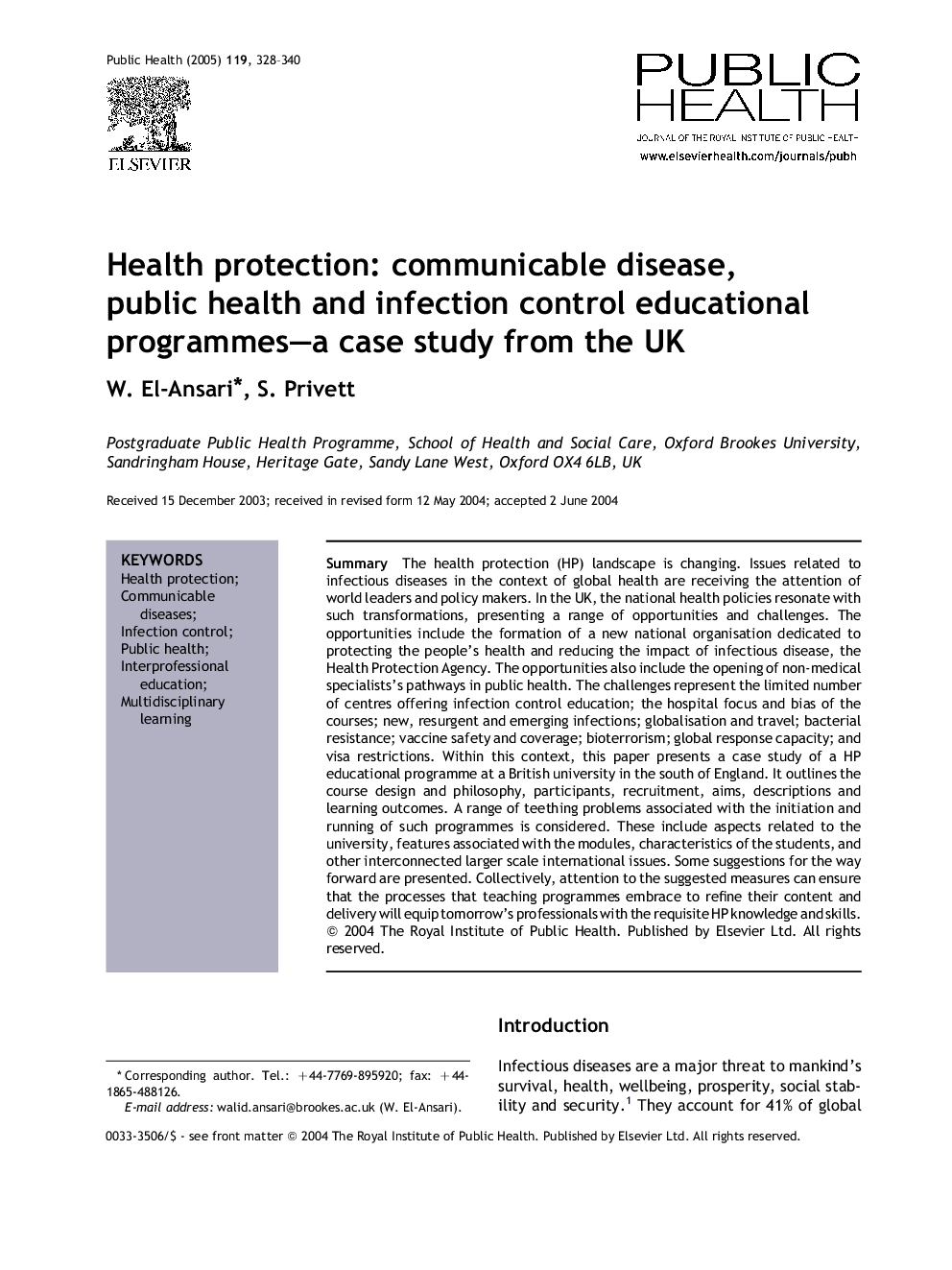| Article ID | Journal | Published Year | Pages | File Type |
|---|---|---|---|---|
| 10516771 | Public Health | 2005 | 13 Pages |
Abstract
The health protection (HP) landscape is changing. Issues related to infectious diseases in the context of global health are receiving the attention of world leaders and policy makers. In the UK, the national health policies resonate with such transformations, presenting a range of opportunities and challenges. The opportunities include the formation of a new national organisation dedicated to protecting the people's health and reducing the impact of infectious disease, the Health Protection Agency. The opportunities also include the opening of non-medical specialists's pathways in public health. The challenges represent the limited number of centres offering infection control education; the hospital focus and bias of the courses; new, resurgent and emerging infections; globalisation and travel; bacterial resistance; vaccine safety and coverage; bioterrorism; global response capacity; and visa restrictions. Within this context, this paper presents a case study of a HP educational programme at a British university in the south of England. It outlines the course design and philosophy, participants, recruitment, aims, descriptions and learning outcomes. A range of teething problems associated with the initiation and running of such programmes is considered. These include aspects related to the university, features associated with the modules, characteristics of the students, and other interconnected larger scale international issues. Some suggestions for the way forward are presented. Collectively, attention to the suggested measures can ensure that the processes that teaching programmes embrace to refine their content and delivery will equip tomorrow's professionals with the requisite HP knowledge and skills.
Keywords
Related Topics
Health Sciences
Medicine and Dentistry
Infectious Diseases
Authors
W. El-Ansari, S. Privett,
